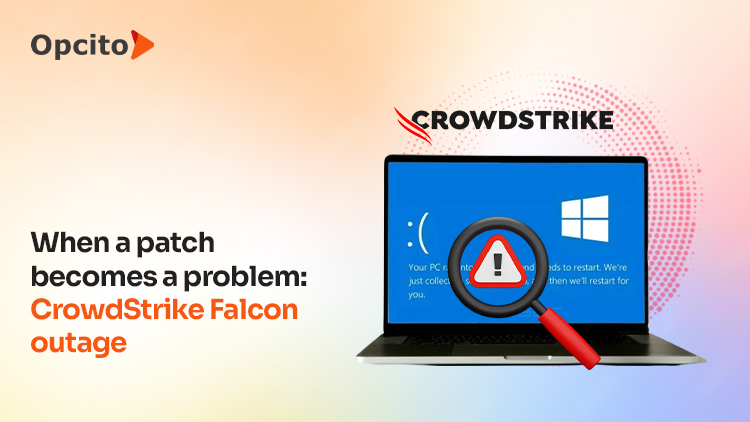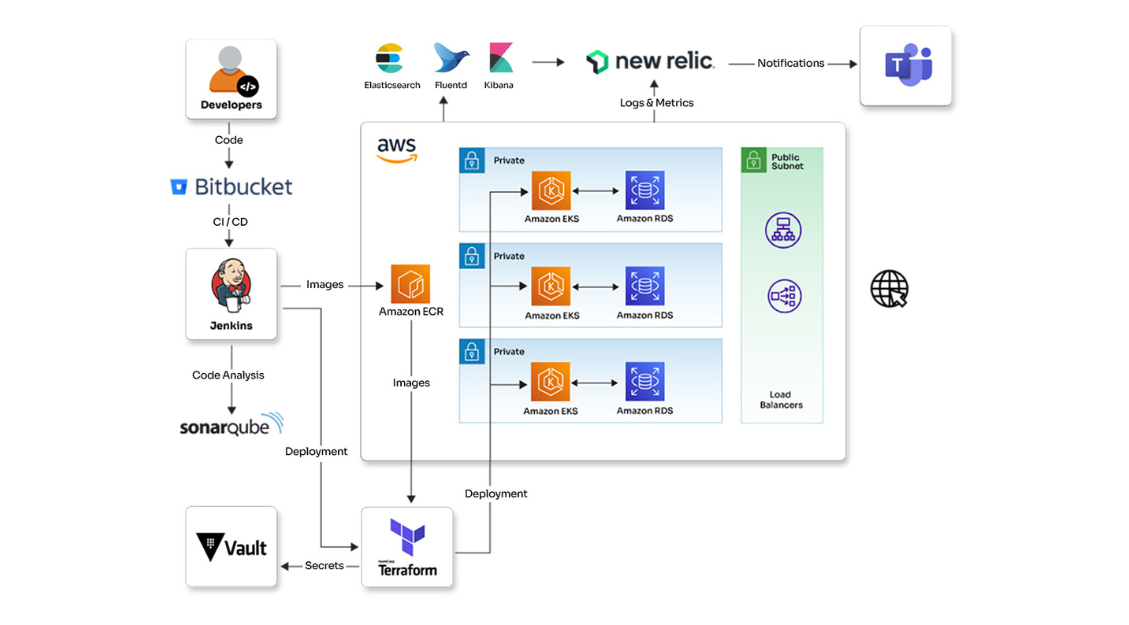Container vulnerabilities and security best practices
Container vulnerabilities and security best practices
Containers have been pretty much a part of the software world since the late 70s when during the development of Unix V7, the chroot system call was introduced. But we had to wait until 2006 to see containers become mainstream when Google developed process containers.
Simplifying hybrid and multi-cloud environments with Google Anthos
Simplifying hybrid and multi-cloud environments with Google Anthos
The word Cloud has been ruling the technology world for more than a decade now, and when I interact with clients from different segments of industries, I see people who want to work on-prem along with cloud environments. To be honest, I don’t blame them. Most of the time the reason is existing heavy investments in the on-prem infra. Even at Opcito, we have been using this combination to develop state-of-the-art applications for our clientele.
Docker Enterprise 3.0 - bringing Docker Desktop to enterprises
Docker Enterprise 3.0 - bringing Docker Desktop to enterprises
The 2019 edition of DockerCon concluded on May 2, 2019. This year, there were a lot of interesting releases and informative sessions. You can have a look at all the highlights from this year’s DockerCon here. The 2018 DockerCon saw the release of Docker Enterprise Edition 2.0, which received a major update in November with the release of version 2.1.
What's new from Elastic for DevOps and Big Data?
What's new from Elastic for DevOps and Big Data?
Elastic is popular for its open-source search experiences among users in the fields of databases and Big Data. It aims at deriving actionable insights from a large pool of data and has gained widespread popularity owing to its reliability, transparency, and ease of use. Elasticsearch is one of the most popular services offered by Elastic. Elasticsearch can be integrated with Hadoop using the ES-Hadoop connect, a two-way connector that will enhance the power of insights drawn from big data.
AWS Blockchain Services
AWS Blockchain Services
Amazon Web Services (AWS) is popular as an application-specific cloud computing platform that provides infrastructure and services for various cloud-native applications. This includes archiving, backup & restore, content delivery, DevOps, the Internet of Things (IoT), analytics, and Blockchain among others. AWS services can be implemented and deployed for a wide variety of modern applications. In this article, we will have a look at how AWS can be used to deploy your own custom Blockchains.
Best practices and tools that will elevate your Infrastructure as Code
Best practices and tools that will elevate your Infrastructure as Code
In my last blog, I talked about the whats and whys of Infrastructure as Code. It is important to understand that IaC is more than just automation. Similar to code development, it is about managing your operations environment in a better way using rules, policies, and structures.
Kubernetes 1.14 - Welcoming Windows workloads now
Kubernetes 1.14 - Welcoming Windows workloads now
The first release of 2019 for Kubernetes is here! And it's a big one. A total of 31 updates with a full third of them being moved to stable and another third of them moving to beta. This is the most enhancements that have graduated to stable in one Kubernetes release! A big theme of this release is supporting more workloads on Kubernetes.
There are security enhancements too in this release with updates to RBAC. Let's have a look at the major features that have graduated to stable.
What is Infrastructure as Code and why should you go for it?
What is Infrastructure as Code and why should you go for it?
End-to-end automation of the software development process is the thing now. In recent years, one can surely say that automation of the overall application development process has gone mainstream, although individual parts of the overall process, like testing, are automated for a while now. But managing and provisioning IT infrastructure was the one area that was a little ignored part in this age of automation.
Securing Kubernetes environment with internal load-balancers and Ingress on AWS and VPN
Securing Kubernetes environment with internal load-balancers and Ingress on AWS and VPN
Security is one of the biggest concern nowadays, and organizations have started investing a considerable amount of time and money in it. 2018 has shown every one of us why it is of utmost importance to secure data and applications against any threat imposed. This is particularly the reason why one needs to pay more attention to securing applications, production, and data-sensitive environments like Elasticsearch or databases like MySQL, MongoDB.
8 variables that will change the DevOps equation in 2019
8 variables that will change the DevOps equation in 2019
January is all about cherishing what went right and evaluating what didn’t in the previous year. It is about predicting what the new year will be like and what needs to be done to make the best out of it. This year saw the addition of 10 Year Challenge in the list. So, being an IT enthusiast, the only 10-year challenge I could think of was DevOps. 2008/09 was the year when the term DevOps started making the rounds of IT world and now it’s almost a decade for DevOps.









